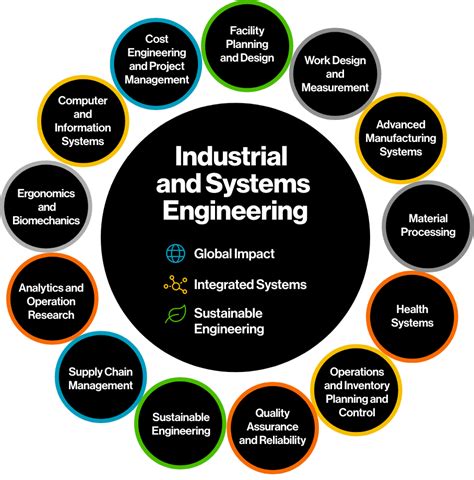The industrial engineering discipline empowers professionals to optimize processes, enhance productivity, and streamline operations across diverse industries. With a growing demand for professionals equipped with these skills, universities and institutions offer a range of industrial engineering courses to cater to aspiring and practicing engineers.

Core Concepts and Foundations
**
Core Concepts and Engineering Math
Industrial engineering courses delve into the fundamental principles of the field, including:
- Operations Research: Optimizing resource allocation, decision-making, and problem-solving
- Engineering Math: Linear programming, probability, and statistical analysis for data-driven decisions
- Process Analysis and Improvement: Identifying bottlenecks, optimizing workflows, and reducing inefficiencies
**
Operations Management
Courses in this area focus on managing and controlling production and service systems:
- Production Planning and Control: Forecasting demand, scheduling production, and managing inventory
- Quality Management: Implementing quality control systems, lean manufacturing principles, and Six Sigma methodologies
- Supply Chain Management: Coordinating logistics, managing suppliers, and optimizing the flow of materials and information
Specialized Applications
In addition to core courses, specialized courses equip students with skills in specific areas of industrial engineering:
**
Human Factors Engineering
- Ergonomics: Designing workplaces to minimize fatigue, improve safety, and enhance productivity
- Human-Computer Interaction: Optimizing the usability and efficiency of user interfaces
**
Data Analytics
- Data Mining and Modeling: Extracting insights from large datasets to identify trends, improve decision-making, and predict outcomes
- Machine Learning: Developing algorithms to automate tasks, improve accuracy, and enhance efficiency
**
Operations Research
- Simulation and Optimization: Modeling complex systems, simulating scenarios, and optimizing outcomes using advanced techniques
- Decision Analysis: Evaluating alternatives, making data-driven decisions, and managing risk
Real-World Applications
Industrial engineering courses are not limited to theoretical knowledge but emphasize practical applications:
- Project Management: Managing projects of various scales, coordinating teams, and delivering results within budget and time constraints
- Engineering Design: Designing and implementing solutions to solve real-world problems in manufacturing, healthcare, and service industries
- Capstone Projects: Culminating experiences that allow students to apply their skills in capstone projects supervised by industry professionals
Industry Trends and Emerging Applications
The industrial engineering field is constantly evolving, with new technologies and methodologies shaping its practice. Courses explore these trends and emerging applications:
- Industrial Internet of Things (IIoT): Connecting industrial machines and systems for real-time monitoring, predictive maintenance, and remote diagnostics
- Blockchain Technology: Enhancing supply chain transparency, automating processes, and improving cybersecurity
- Cloud Computing: Providing scalable and cost-effective platforms for data analysis, optimization, and collaboration
Common Mistakes to Avoid
Aspiring industrial engineers should be aware of common pitfalls:
- Focusing solely on technical skills: While technical proficiency is essential, effective industrial engineers possess strong communication, teamwork, and problem-solving skills.
- Neglecting industry experience: Internships, co-ops, and industry projects provide invaluable experience and prepare students for real-world challenges.
- Overestimating capabilities: It takes time and effort to master the wide range of skills required in industrial engineering. Seek support from mentors, peers, and resources when needed.
Career Prospects and Earning Potential
According to the U.S. Bureau of Labor Statistics, industrial engineers earn a median annual salary of $95,300 as of May 2021. The demand for industrial engineers is projected to grow 10% from 2020 to 2030, faster than the average for all occupations.
Industrial engineers find employment in a wide range of industries, including:
- Manufacturing
- Healthcare
- Business and Consulting
- Transportation and Logistics
- Aerospace and Defense
Conclusion
Industrial engineering courses provide a comprehensive foundation and specialized skills that empower professionals to drive efficiency, enhance productivity, and meet the challenges of a rapidly evolving industrial landscape. By embracing core concepts, specialized applications, and emerging trends, aspiring industrial engineers can unlock career opportunities and make a significant impact on the world around them.
